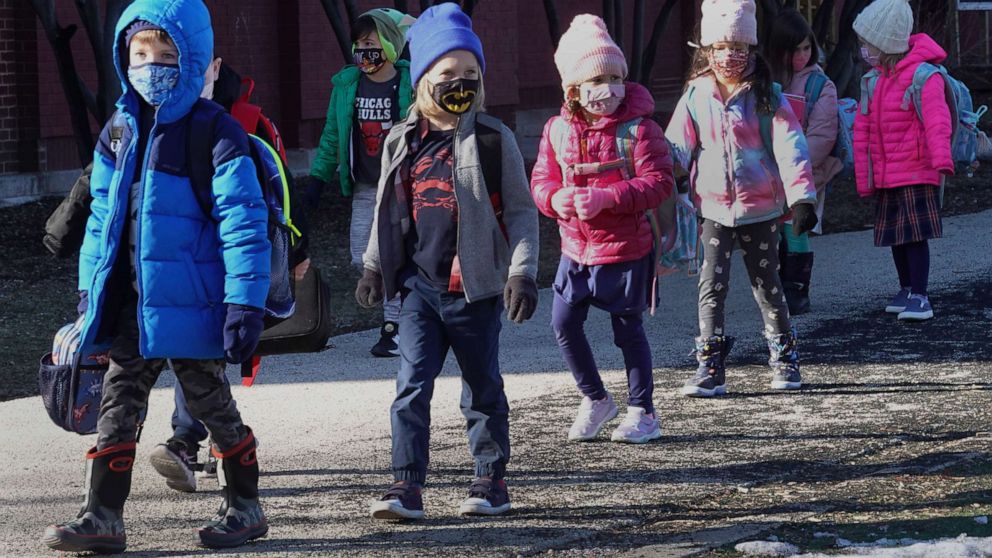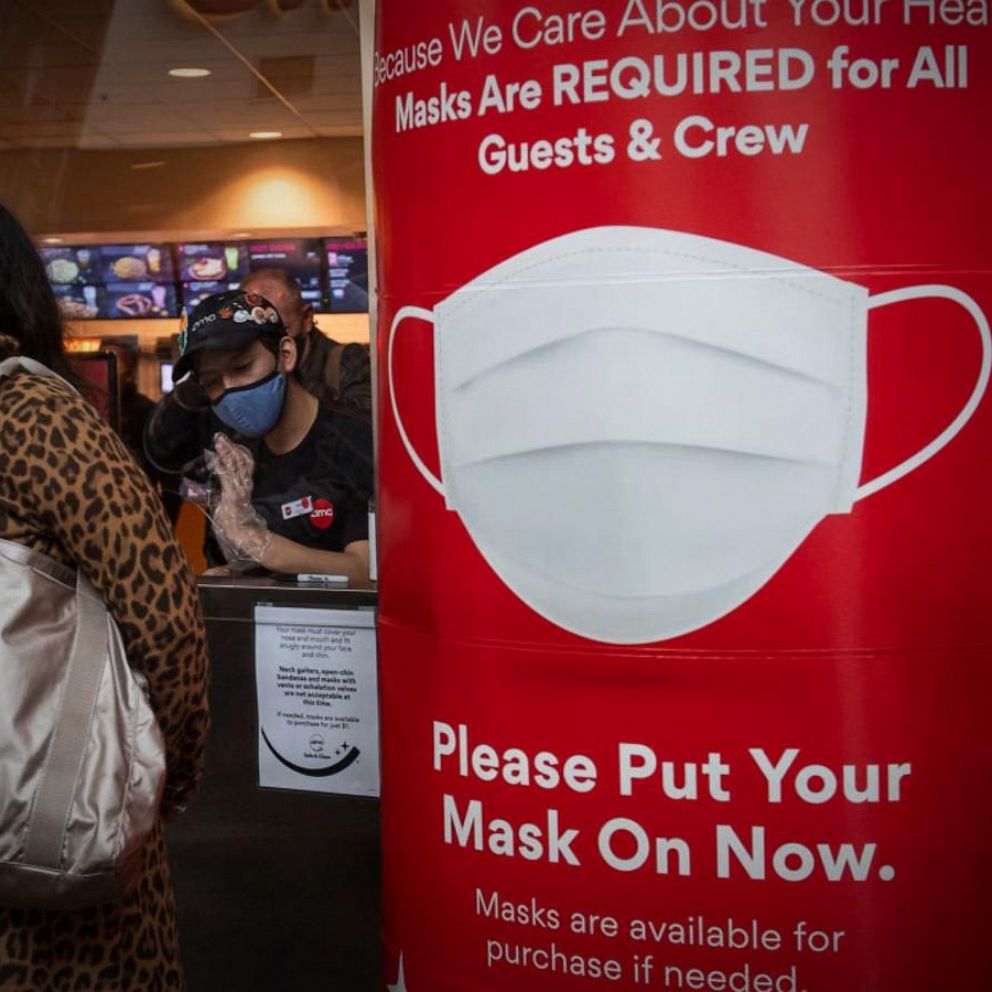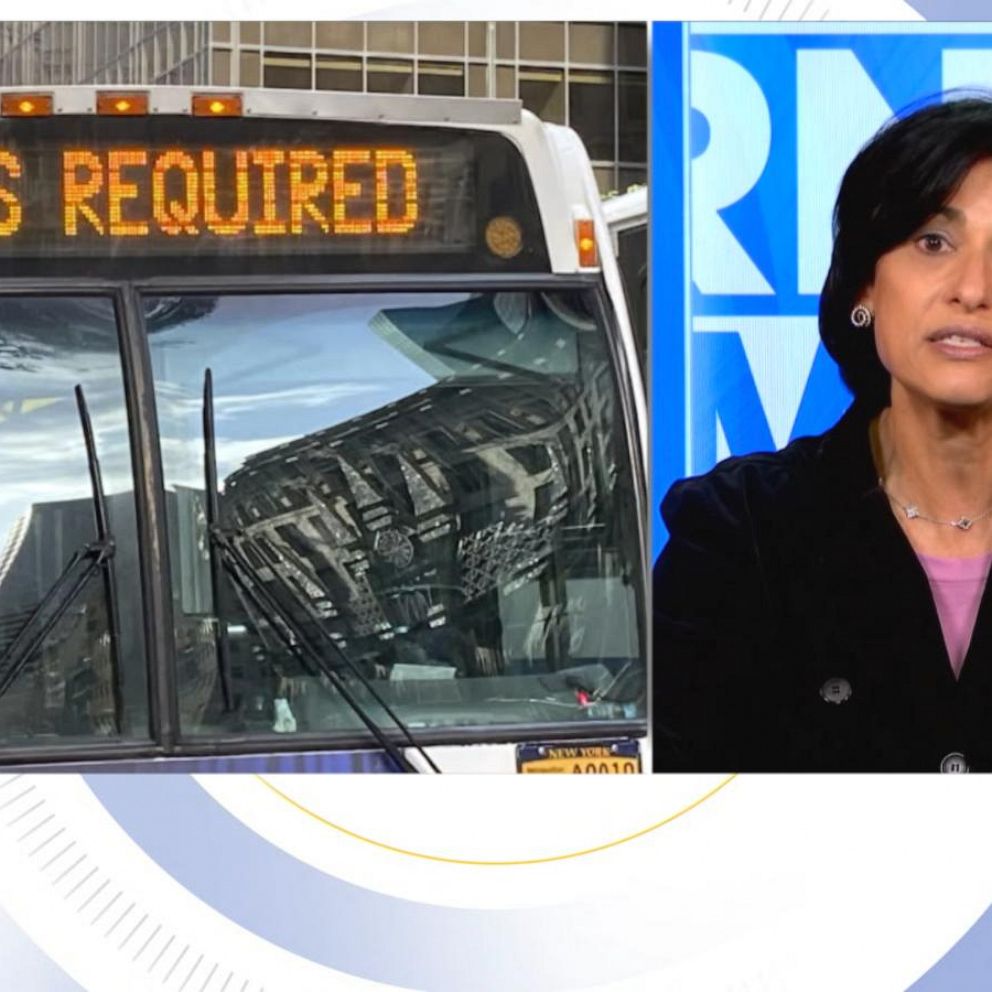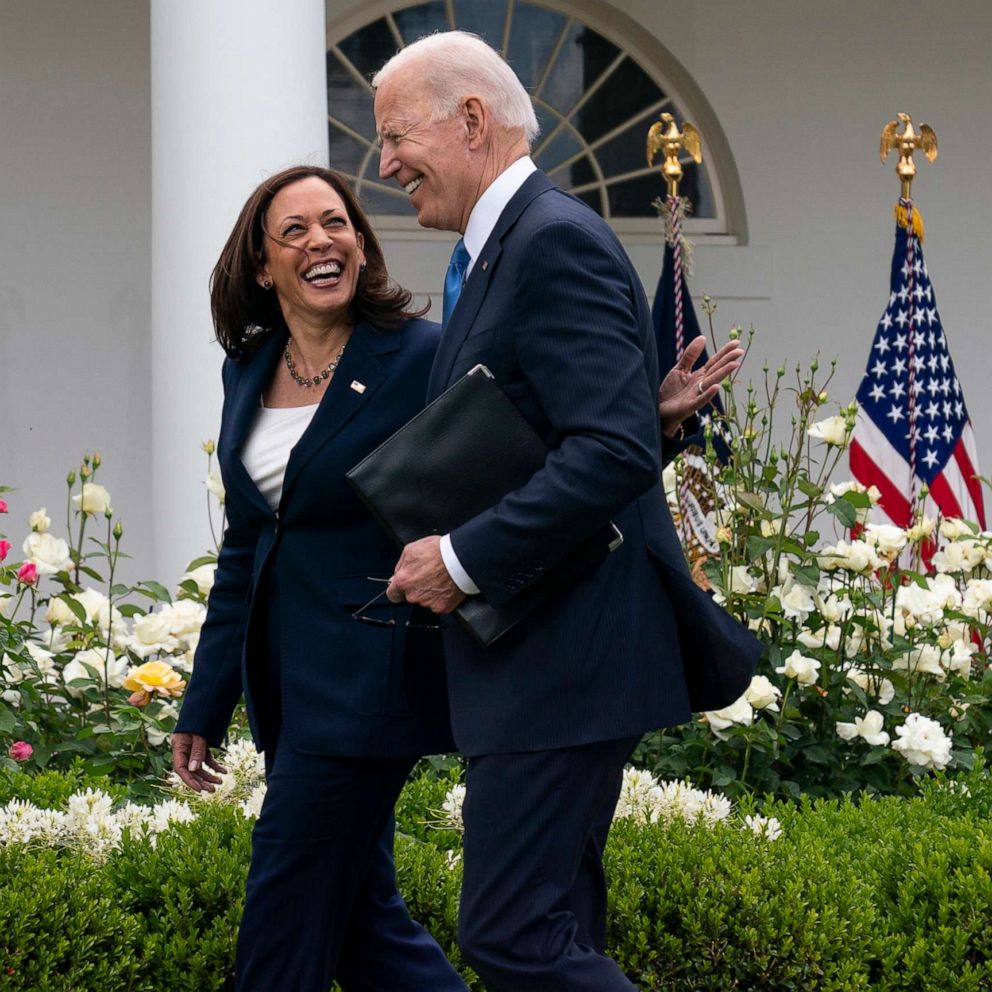Face masks and kids: Pediatrician shares what parents should know
The new government guidance that fully vaccinated Americans can return to life without masks marked a turning point for the nation's reopening amid the coronavirus pandemic, but it also sparked many questions, including from parents.
Under the new guidance from the U.S. Centers for Disease Control and Prevention (CDC), fully vaccinated Americans no longer need to wear masks indoors or outdoors, including in crowds.
Left behind from the new recommendation are kids ages under the age of 11 who do not yet qualify for a vaccine.
In the U.S., everyone ages 12 years and older is eligible for a COVID-19 vaccine.
Here is what parents may want to know about face masks and kids to help them make decisions.
1. Do kids who are not vaccinated still need to wear face masks?
Yes, according to Dr. Richard Besser, a pediatrician and president and CEO of the Robert Wood Johnson Foundation.
"I'm encouraging all my patients who are 12 and older to get vaccinated, but for younger kids, the current recommendations are, if you're out with your kids in indoor places, they should be wearing masks," Besser said Friday on "Good Morning America."
The new recommendation from the CDC also carves out exceptions for buses, planes, hospitals, prisons and homeless shelters, situations in which all people, vaccinated or not, still need to wear face masks. And since the CDC does not make laws, Americans still need to abide by federal, state, local, tribal, or territorial laws, rules, and regulations, including local business and workplace guidance.
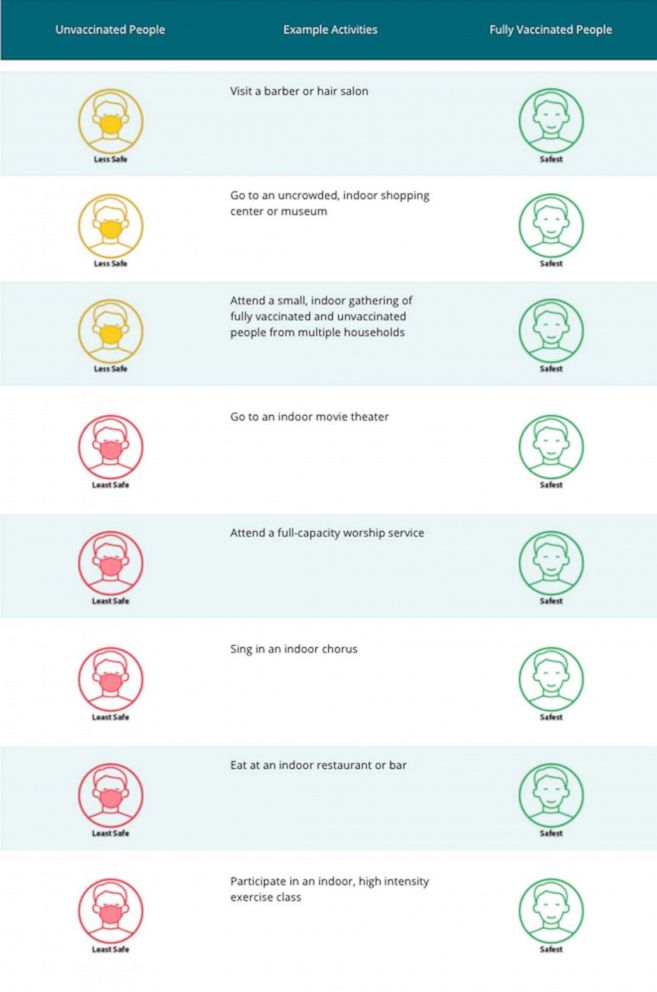
2. Do vaccinated parents need to wear face masks if their children are not yet vaccinated?
"If you are fully vaccinated, you should feel very comfortable being around your children who aren't vaccinated without you having to wear a mask," said Besser. "It gets a little trickier when going out in public with your children who aren't vaccinated."
He reiterated that children who are not vaccinated should wear face masks when in public, indoor places.
3. Can vaccinated grandparents and family friends interact with unvaccinated children?
The same mask guidance applies for vaccinated persons of all ages. Unvaccinated children would still need to wear masks in most settings.
The CDC considers it safe for unvaccinated people to be outside in a small gathering with fully vaccinated family or friends without a mask, and with a mask if there are other unvaccinated persons around.
4. Can unvaccinated kids contract COVID-19 from unvaccinated people without face masks?
Yes, according to Besser.
"This is one of the reasons we want to make sure that everyone in every community has access to vaccine and it's as easy as possible," he said. "If you are someone who is deciding not to get vaccinated, you do need to wear a mask. It's the right thing to do for those around you who can't get vaccinated or who may be at higher risk."
Under the CDC guidance, people who are not fully vaccinated need to continue to wear face masks and maintain social distancing.
The CDC defines fully vaccinated as two weeks after the final shot.
5. Does this guidance change requirements for face masks in schools?
Not exactly.
Under the CDC guidance, children who are not yet fully vaccinated would still need to wear face masks while indoors at school.
And while the CDC recommendations are at the federal level, states will still have the choice to implement their own guidelines.
That means requirements for face masks in schools will still be decided on a state and local level.
6. What are good, safe activities for unvaccinated kids?
Besser recommends keeping kids in outdoor activities as much as possible until they can get vaccinated.
"I'm hoping the CDC looks a little more at their guidelines around what kids can do outside," he said. "I'd like to see more encouragement for kids getting outdoors."
He added, "This has been a really hard year on everyone, but in particular on children, and we need to let kids be kids in ways that are safe."
